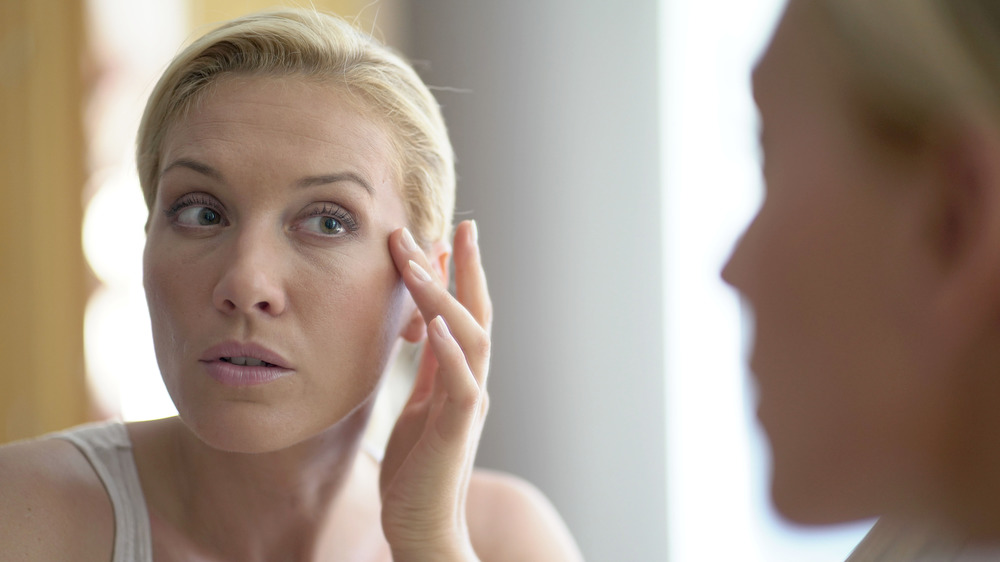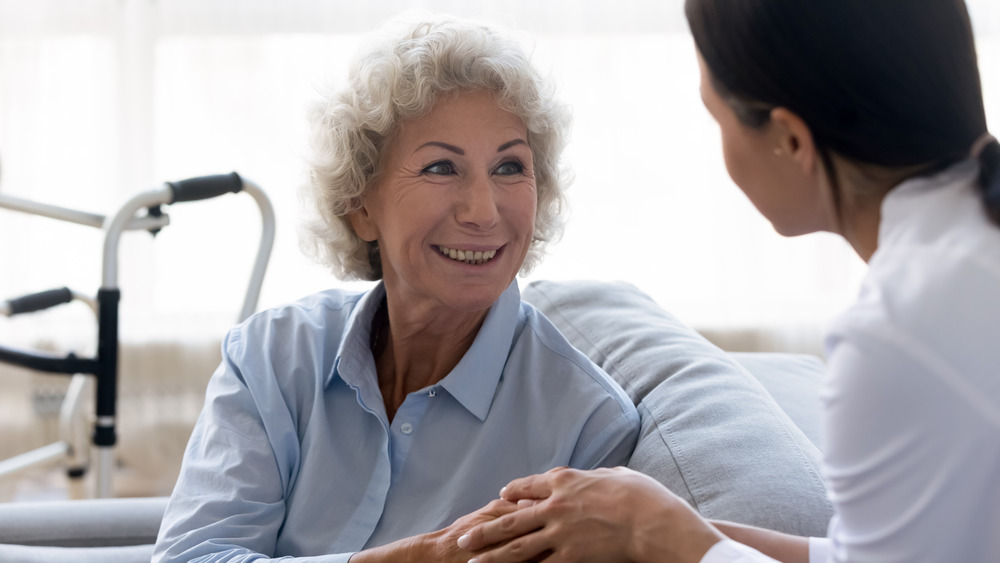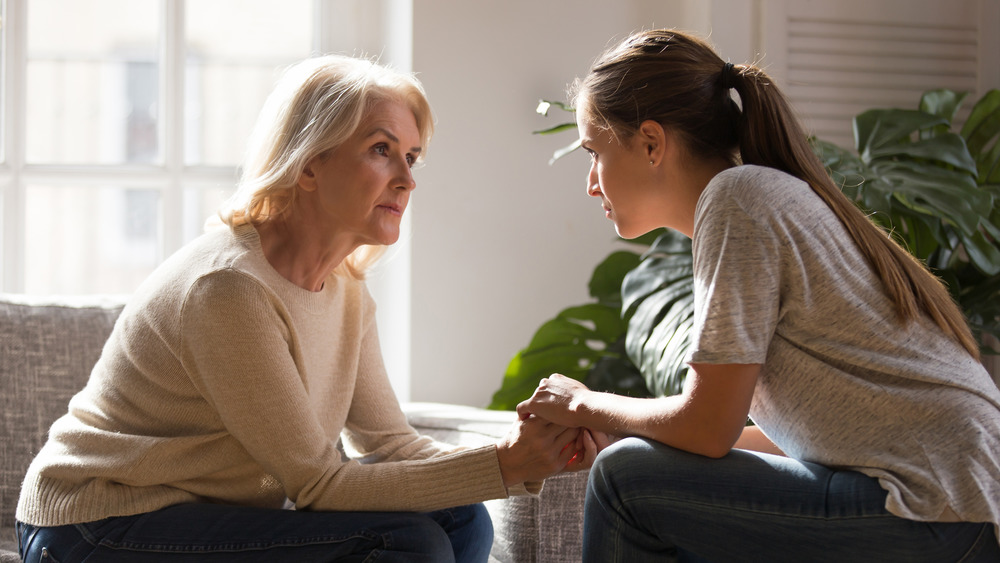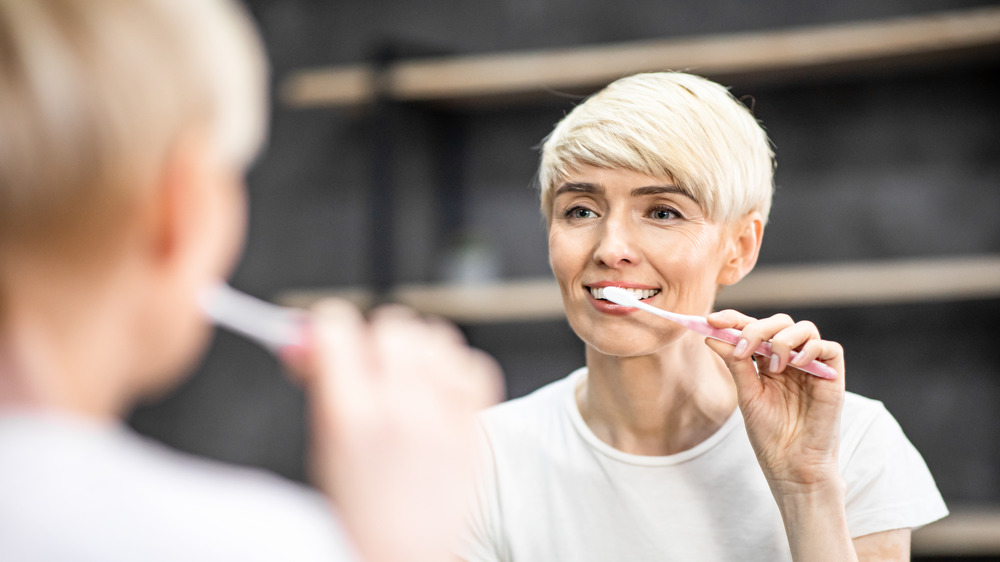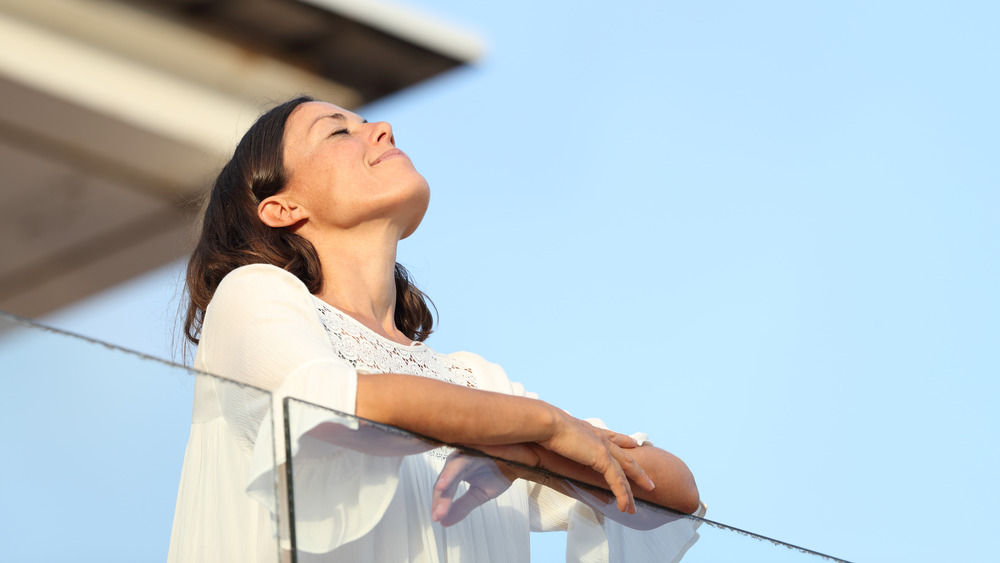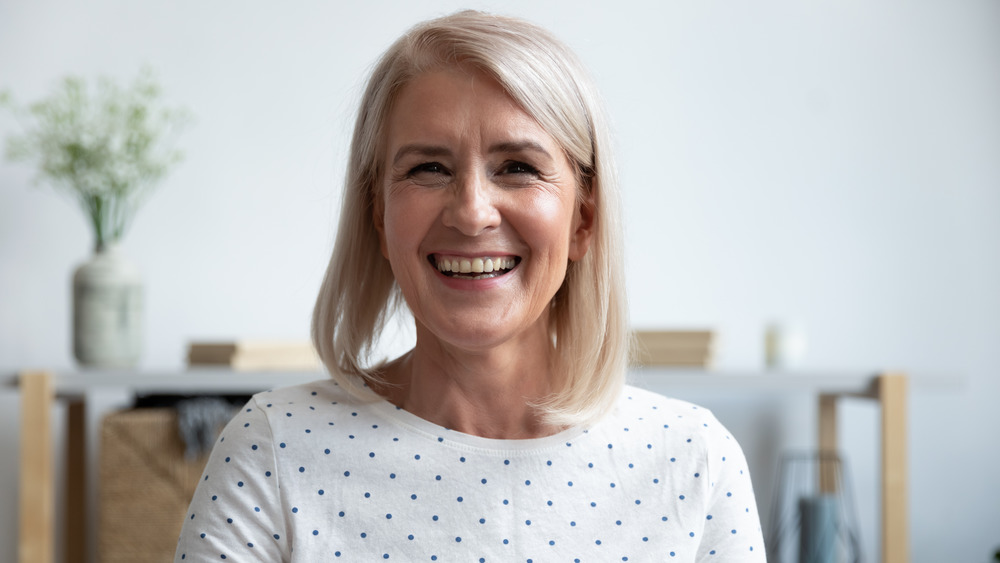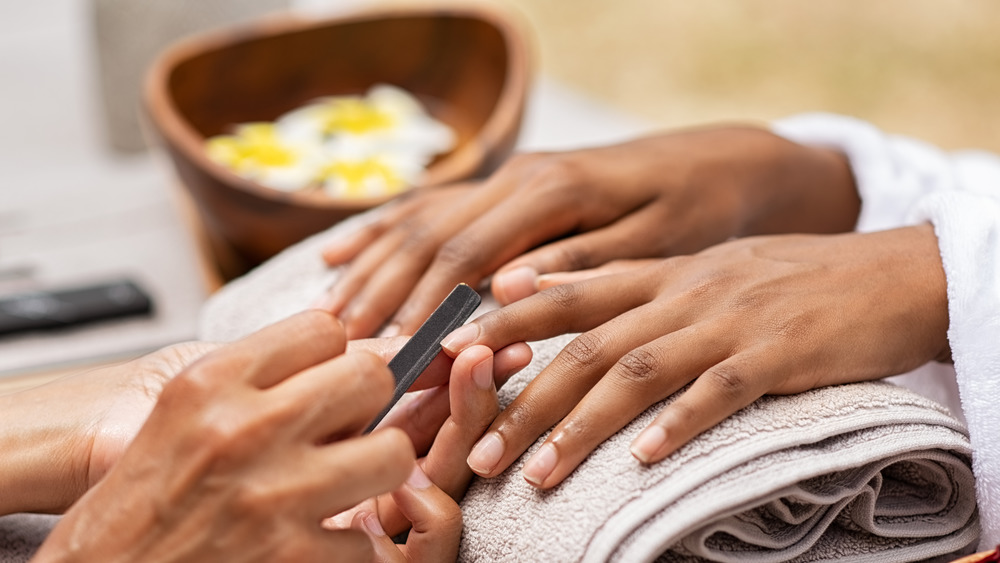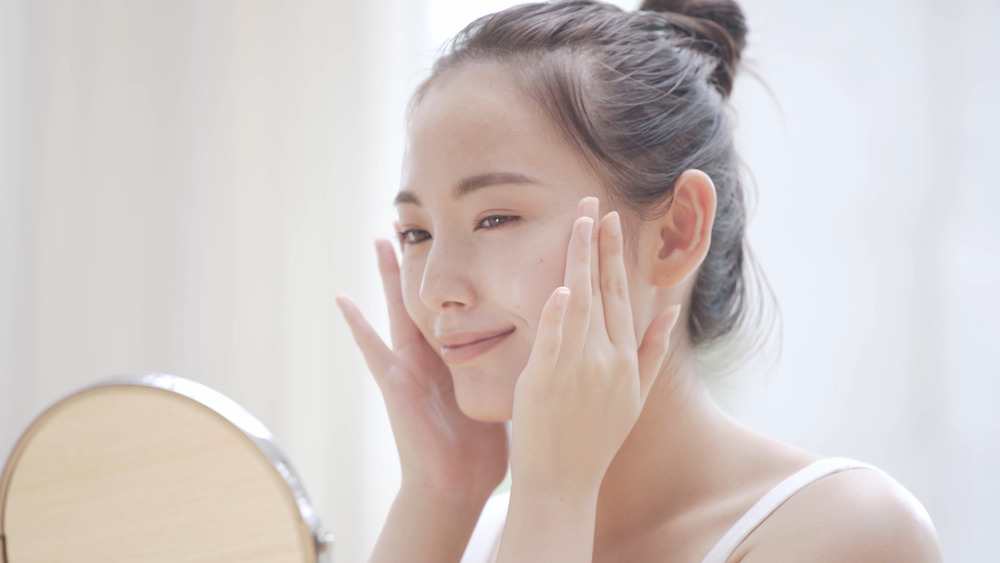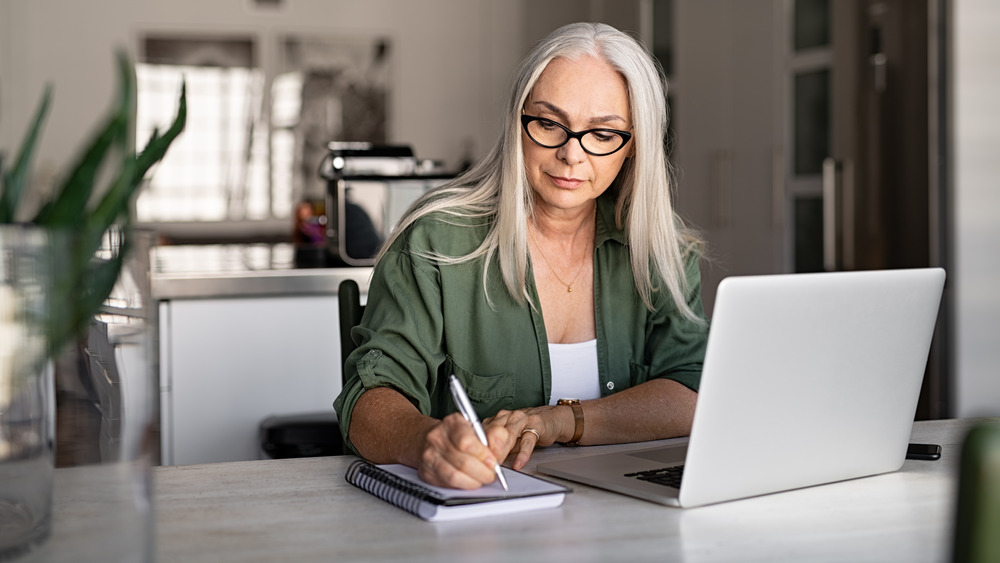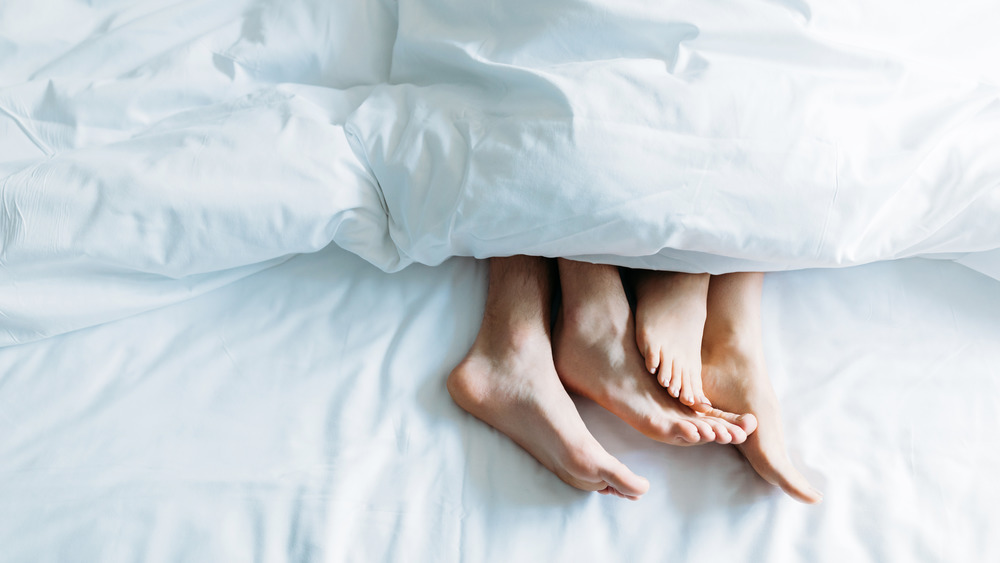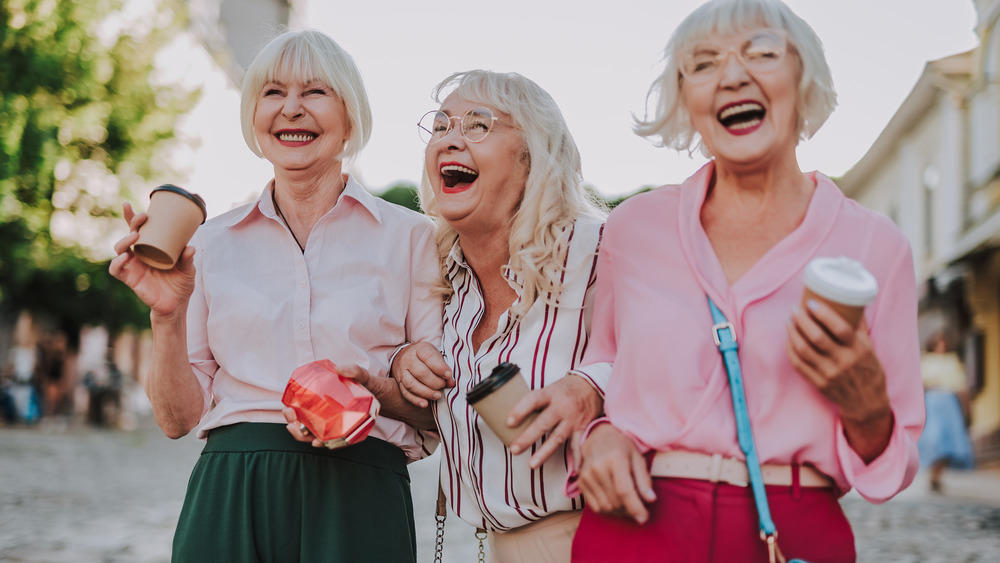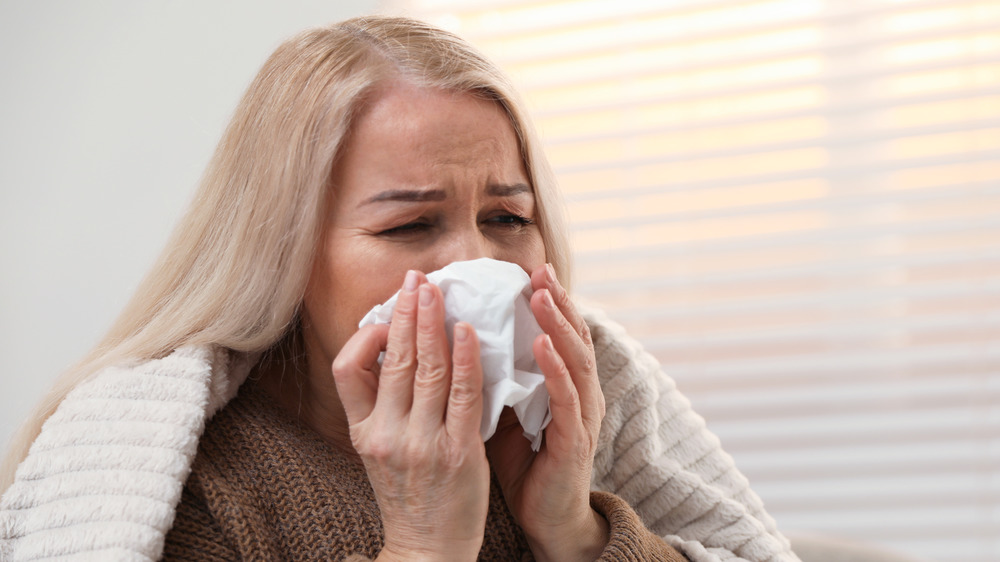Surprising Ways Your Body Changes As You Get Older
"Getting older" is a term that summons cringe-worthy thoughts of pesky grays, fine lines, and body aches. Magazines push products at us to liven up our hair and tighten up our skin, from root touch-ups and concealers to firming facial serums with retinoid and hydrating under-eye gels with hyaluronic acid (often called a "miracle molecule"). But despite all the hype surrounding ingredients like kojic acid, zinc oxide, licorice root extract, we don't need "miracles."
However often you slather your hair in thickening mayonnaise masks, moisture-bomb your face with avocado extract, exfoliate your skin with activated charcoal, brush your teeth with remineralizing toothpastes, your body is still going to change with age. It's inevitable. It's natural. It's a fact of life.
Sure, you will start to audibly groan when you stand up or sit down. And, yes, hangovers will turn into debilitating days of utter unproductivity. But it's not all bad! In fact, we'd argue that aging can be beautiful. Here are some surprising ways that your body changes as you get older.
While your fluid intelligence dwindles, your crystalized intelligence increases
It's easy to label ourselves and others as smart or, well, not so smart. But intelligence is far too nuanced to be boiled down to books smarts and streets smarts, or your IQ (intelligence quotient) and your EQ (emotional quotient). What you may not know is that you we all also have "fluid intelligence" and "crystalized intelligence," according to research published in Frontiers in Human Neuroscience. And despite how scatterbrained you might feel as you get older, you're actually becoming niftier.
Fluid intelligence is the adaptive knowledge you gain in certain situations. It's your problem-solving skills and your ability to reason abstractly, independent of previous practice, according to research published in the journal, Neuropsychologia. Over time, as you've "seen it all," your fluid intelligence may start to taper off.
Nevertheless, your crystalized intelligence, which is gained over time through learned lessons, continues to increase. As you age, you accumulate new knowledge and deepen your understanding of things through both educational and cultural experiences, according to a study in Encyclopedia of Autism Spectrum Disorders. In essence: You're becoming the "ole wise one."
Grumpy grandparents aside, you'll likely get happier with age
You probably know at least one cranky older person. Perhaps it's your own grandmother with her offensively absent filter — you know, the one always asking if you're pregnant (when you're most certainly not). Or maybe it's an old family friend who shamelessly snaps at service staff because his coffee didn't come quickly enough or to his liking.
These grumpy grandparents, relatives, and associates aside, science says that most people actually grow happier with age. According to a study published in the Journal of Personality and Social Psychology, older adults are generally pretty positive (via American Psychological Association).
Why? Well, research published in Frontiers in Psychology suggests that "the positivity effect stems from age-related shifts in goal prioritizing that increase the salience of emotionally gratifying information in attention and memory." In other words: We choose to focus on and remember the good more than the bad. The older you get, the more adept you become at regulating your emotions, concludes research published in the Journal of Experimental Psychology: General.
Despite caregiving responsibilities, you tend to become less empathetic with age
As we get older, we often find ourselves taking closer care of our even older loved ones. Parents care for their young children until, ultimately, adult children care for their parents. Partners may care for each other, whereas siblings might care for one another in older age. While you might assume that as your caregiver duties become evermore important, you'd develop more empathy, that's not exactly true.
Emotional empathy (your ability to share similar emotions as others and feel compassion for others) stays rather steady and, for some, increases over time. Because our responses to others' pain stem from emotional empathy, it makes sense that this wouldn't diminish with more caregiving. But research has found that with age comes reduced activity in a part of the brain associated with cognitive empathy (your capacity to grasp others' perspectives and understand their thoughts and feelings).
According to a study published in Frontiers in Psychiatry, older adults are typically less empathetic than younger people in this way. Perhaps this is because cognitive empathy requires imagination, which is surely sharpest when we're kids.
Your smile will get a little dimmer as you get older
There are countless whitening and enamel-restoring oral healthcare products on the market. While it's certainly important to give your teeth and gums extra attention as you get older, these products aren't going to totally reverse your body's natural aging process. Sure, keeping closer care of your mouth and maintaining proper oral hygiene can slow your body's roll and help prevent oral health nightmares. But as you get older, your teeth and gums will unavoidably show "wear and tear," according to Harvard Health Letter.
A lifetime of chewing and grinding your teeth chips away at your enamel and dulls your choppers. Years and years of eating acidic foods and carbonated beverages also weakens your enamel. Never mind that certain snacks and drinks can stain your teeth, and the yellowing of the dentin inside the teeth becomes evermore apparent through thinning enamel.
Plus, the nerves in your teeth's pulp become less sensitive over time, so cavities and cracks can advance well before you even notice them. That's largely why the rate of tooth decay in people 65 years and older rises faster than that of school-aged children, according to Harvard.
You may finally become the morning person you've always envied
For better or worse, your sleep patterns tend to change with age. Most people find that they have a harder time falling asleep and staying asleep, so they typically wake up earlier in the morning, according to the U.S. National Library of Medicine. While this is not necessarily the ideal situation, research published in Nature Communications explained that early risers are happier and healthier. On average, studies show that they're sharper and more productive, set higher goals for themselves, plan more for their futures, and have a better overall sense of well-being.
Whether or not you have the energy to finally become the morning person you've always envied is another story, however. Because you may struggle to fall into a deeper sleep and may get less sleep overall, you can start feeling deprived. Insomnia can deplete your energy, weaken your immune system, and even cause depression if chronic, according to the Sleep Foundation.
Those killer migraines you get should ease up as you get older
Sure, it's no secret that as we get older, we start to feel it in our bones a bit more. Rolling ourselves out of bed can feel like a whole to-do. Muscles you never even knew you had feel sore after everyday chores like shoveling snow and raking leaves and even, somehow, sitting in the car for too long. And does anyone else feel so winded walking up the smallest set of stairs? Ugh.
While it's likely that you'll experience all sorts of aches and pains as you grow older, those crushing migraines you get every now and then (or even more frequently) should at least start to let up. That's according to research published in Current Pain and Headache Reports. Likewise, some major symptoms of migraines — like sensitivity to light, dizziness, throbbing, pressure, stabbing pains, nausea, and vomiting — decrease with age, according to a study published in the American Headache Society's journal, Headache. Older adults also tend to have milder migraines and an easier time functioning when they strike.
Your lips will become thinner as you get older
Although your favorite movie stars may have full lips well into old age, they've likely had some help from collagen or hyaluronic acid injections. The reality is: The older we get, the thinner our lips become.
"As we get older, many things change in our skin, including collagen, elastin, and hyaluronic acid production," Peterson Pierre, a California-based dermatologist, told Mic. These are all proteins that keep the skin soft, healthy, and elastic, but when our body is depleted of these proteins, our skin consequentially dries out. As such, our lips shrivel and slim up. Of course, certain behaviors that reduce moisture in the skin (read: getting a tan and smoking) can also thin your lips.
Additionally, naturally occurring bone loss in older age can create a sunken look in the face, board-certified plastic surgeon Yuly Gorodisky, explained in an article for the West Coast Plastic Surgery Center. Because the lips are less supported by your facial structure as you age, Gorodisky explained that they roll inward and thus appear thinner.
Your nails will finally thicken up (though not necessarily in a good way)
No one wants thin, brittle nails that break all the time. Not only do they look sad, but they can also give you an eek feeling when they split and tug on the skin of your nail beds. Many cosmetic companies compete with plentiful products promising to thicken up your nails, infusing them with a whole host of essential vitamins and minerals. Essie, for example, boasts base coats with everything from Ginkgo Biloba (a type of tree; we had to Google it too) to vitamin E. Sally Hansen promises a "miracle" thickener with up to 70 percent thickness in just four days whereas OPI offers an entire collection of strengtheners.
Here's a bit of news, though: Your nails should eventually thicken up on their own— and for free! Nail changes are common in older people, according to the College of Family Physicians of Canada. But these changes aren't necessarily so wonderful.
The growth rate of our fingernails and toenails slows as we age, so the nails thicken because the cells, known as onychocytes, "pile up," according to PA Foot & Ankle Associates. Diabetes can also cause nails to thicken, according to research published in the American Journal of Clinical Dermatology. And diabetes adversely affects older adults, per the American Diabetes Association.
Your self-confidence will pick up again as you age
Self-confidence ebbs and flows for many of us. When we're children, blissfully unaware of society's unattainable standards of success and exclusionary notions of beauty, we're teeming with, let's be honest, unfounded self-confidence. As we get older, however, the pressures of society start to taint our self-worth and hinder our self-acceptance. Not feeling "enough" is pretty darn normal.
While women's self-confidence takes a dip in the tween and teen years, according to a survey cited by The Atlantic, self-confidence in both men and women picks up as they get older, Harvard Men's Health Watch revealed. With maturity, you become more self-assured — well, to a point. Research published in the Journal of Personality and Social Psychology explained that your level of self-esteem follows somewhat of a bell curve as you age. It reaches its height during middle age and tends to decline after the age of 60.
Your hair will change in color and thickness
While there's an array of products to cover up gray hair, the look has become rather trendy. Glamour even called this unique period of time a "gray-hair revolution." But guess what: Going gray doesn't have to be trendy for you to rock it because, hey, it's totally natural! As you get older, your hair will get grayer. And we're talking about body hair, too, like your armpit hair and pubic hair.
According to the U.S. National Library of Medicine, your hair color can change because your hair follicles make less melanin (a pigment) as you age. It's typical for this to start happening in your 30s but, for some, it can happen much earlier. Eventually, your hair will turn white.
Your hair will also change in thickness as you age. This is because the hair is made up of strands of protein, of which your body produces less and less. Because a single hair has a normal life of about two to seven years, and your rate of hair growth slows over time, it's normal that you'll notice some thinning and balding as you get older. Some follicles may even stop producing hair altogether.
Your sex life may improve as you age
Forget the horror stories saying sex gets uncomfortable or scarce with age. It's in their late 20s into their mid-30s that women have the most sexual fantasies, according to research cited in the journal, Personality and Individual Differences. And, as women's "biological clocks" get to ticking, the more they tend to want sex — and the more they tend to have it. This peaks between 27 and 45 years old for obvious reasons.
According to a survey of women from the Natural Cycles contraception app, more women in their late 30s admitted to having had their best orgasms (and lots of 'em!) in their 30s (via New York Post) compared to women in their 20s. Interestingly, additional research from the Stein Institute for Research on Aging at the University of California found that sexual satisfaction is tied to "successful aging" in women ages 60 to 89. Essentially, the happier you are, the better the sex is, and the better the sex is, the happier you are. It's a beautiful cycle.
Women aren't the only ones to enjoy greater sexual satisfaction as they get older, though. A study cited by Psych Central revealed that men also seem to enjoy sex more as they age — in fact, even more so than women.
You'll probably get a bit shorter over time
Ever wonder why your grandparents are shorter than your parents? One day they can reach the spice cabinet, and the next day they're needing the kitchen stool. It's because they're quite literally shrinking — and you will, too.
"Our height is determined by the length of the leg bones, the spine, and the skull," physician Anthony L. Komaroff explained in Harvard's Health Letter. While our legs and skulls don't really change after we reach adulthood, our spinal bones (vertebrae) do. Most of us have 24 stacked vertebrae that are tethered together with fibers and muscles. Over time, our bones get thinner and that stack becomes shorter and shorter.
Poor health and nutrition, health conditions like osteoporosis, metabolic changes in the body, flattening of the soles of the feet, poor posture, compression or dehydration of the discs between the vertebrae, and other factors can also contribute to your height reduction, according to Ventura Orthopedics.
Your senses, like smell and taste, will change as you age
For better or worse, your senses of smell and taste are likely to change over time, according to the National Institute on Aging. Strong stinky scents won't plague your nostrils as much the older you get, but you won't be able to smell the good stuff quite as well either.
Interestingly, your sense of smell plays a massive role in memory recall. Whether you get a whiff of cologne or a flower, the aroma alone can induce comforting feelings of nostalgia. But that may all fade with age. The loss of smell can make foods far less flavorful, too. And, when food doesn't taste quite as scrumptious, we tend to overload it with unhealthy additives like, you know, salt and sugar.
These additives become more dangerous the older you get, especially if you develop medical conditions like high blood pressure or high blood sugar, according to the National Institute on Aging. And, ironically, the medications to treat these conditions can also change how food tastes. In addition, a lifetime of smoking and poor oral hygiene can also start to give you a funky taste in your mouth.
Your immune system will inevitably weaken as you grow older
Unfortunately, you're not always going to be able to bounce back like you once could or currently do. Aging takes a toll on your immune system. The common cold could hit you much harder than it used to hit you.
Your body reduces its production of B and T cells, and the quality of your mature lymphocyte pool drops, according to research published in the Journal of Clinical Investigation. B cells secrete antibodies that fight the bad antigens, and T cells help activate those B cells while killing off infected cells, according to a report in Molecular Biology of the Cell. In other words: As you age, you stop responding as efficiently to antigens, and you have a harder time recovering from sicknesses.
This means you have to take greater care of yourself and listen more closely to your body as you get older. Practice healthy habits, fuel your body with nutritional meals, and try to keep clean in this germ-infested world. At the end of the day, it's the best you can do.

